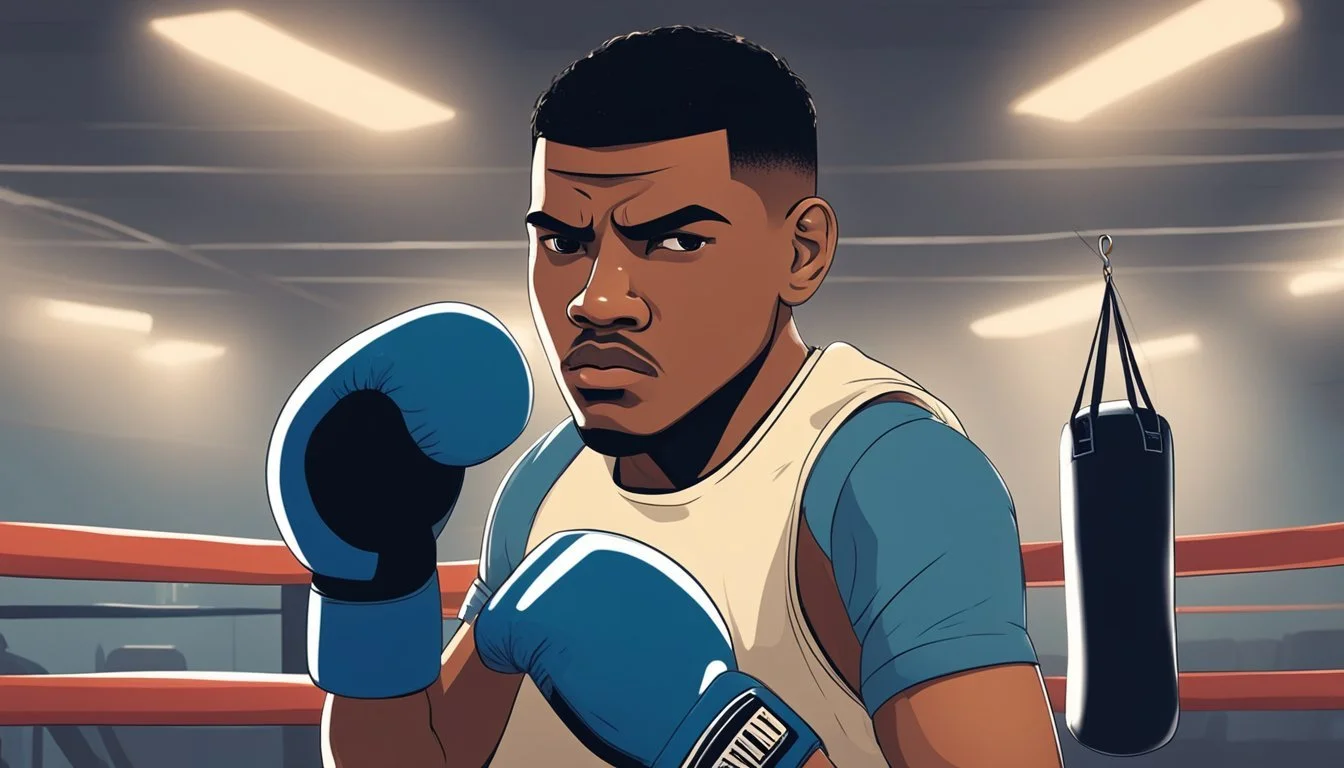Boxing and Bipolar: Tyson Fury's Mental Health Journey
From Darkness to Champion
Tyson Fury, the heavyweight boxing champion known as the 'Gypsy King', has faced battles both inside and outside the ring. While his boxing skills have earned him world titles, Fury's most challenging fight has been against bipolar disorder and depression. His journey from the depths of mental health struggles to reclaiming his boxing crown stands as a testament to resilience and determination.
Fury's mental health challenges emerged after his 2015 victory over Wladimir Klitschko, which marked the beginning of his reign as world heavyweight champion. Despite achieving professional success, Fury found himself grappling with extreme mood swings, substance abuse, and suicidal thoughts. The boxer's weight ballooned, and he failed drug tests, putting his career at risk.
Recognizing the need for change, Fury sought help and began openly discussing his mental health. He embraced a combination of therapy, medication, and lifestyle changes to manage his bipolar disorder. Through his recovery, Fury has become an advocate for mental health awareness, using his platform to encourage others to seek help and break the stigma surrounding mental illness.
Early Life and Entry into Boxing
Tyson Fury's journey to boxing greatness began in his early years, shaped by his family heritage and innate talent. His distinctive nickname reflects both his cultural roots and fighting spirit.
The Formative Years of Tyson Fury
Tyson Fury was born on August 12, 1988, in Manchester, England. He came from a family with a rich boxing tradition, with his father John Fury being a former professional boxer.
Fury's upbringing was deeply influenced by his Irish Traveller heritage. This background instilled in him a strong sense of identity and resilience from a young age.
At just 10 years old, Fury began training in boxing. His natural talent quickly became apparent as he excelled in amateur competitions.
The Gypsy King: A Nickname's Origin
Fury's nickname "The Gypsy King" stems from his Irish Traveller roots. This moniker reflects his pride in his heritage and his dominant presence in the boxing world.
The nickname gained prominence as Fury rose through the ranks of professional boxing. It became synonymous with his larger-than-life personality and impressive fighting style.
Fury embraced the title, using it to highlight his unique background and connection to the Traveller community. The nickname has become an integral part of his public persona and boxing identity.
Rise to Fame: Key Fights and Championships
Tyson Fury's ascent to boxing stardom was marked by several pivotal matches and title wins. His undefeated record and impressive performances against top-tier opponents solidified his position as a dominant force in heavyweight boxing.
Defeating Wladimir Klitschko
Fury's career-defining moment came on November 28, 2015, when he faced long-reigning heavyweight champion Wladimir Klitschko in Düsseldorf, Germany. The British boxer displayed exceptional skill and strategy, outmaneuvering Klitschko throughout the 12-round bout.
Fury's height advantage and unorthodox style proved challenging for Klitschko. The fight ended with a unanimous decision in Fury's favor, earning him the WBA, IBF, WBO, IBO, and The Ring heavyweight titles.
This victory shocked the boxing world and established Fury as the lineal heavyweight champion.
Achieving the Heavyweight Champion Title
Fury's triumph over Klitschko catapulted him to the top of the heavyweight division. He became the first British heavyweight to hold three major world titles simultaneously since Lennox Lewis in 1999.
The newly crowned champion's reign was short-lived, however. Due to personal issues and contractual disputes, Fury vacated his titles in 2016. This period marked the beginning of his well-documented struggles with mental health and substance abuse.
Despite these setbacks, Fury's status as lineal champion remained intact, setting the stage for his eventual comeback.
Significant Matches Leading to WBC Recognition
After a two-and-a-half-year hiatus, Fury returned to the ring in 2018. He faced Deontay Wilder for the WBC heavyweight title on December 1, 2018. The fight ended in a controversial split draw, with Fury dramatically rising from a 12th-round knockdown.
A rematch with Wilder on February 22, 2020, saw Fury dominate the fight. He secured a TKO victory in the seventh round, claiming the WBC heavyweight title. This win completed Fury's comeback story and cemented his status as one of the era's top heavyweights.
Fury successfully defended his WBC title against Wilder in their third bout on October 9, 2021, winning by knockout in the 11th round.
Mental Health in the Ring
Tyson Fury's boxing career has been deeply intertwined with his mental health struggles. His journey illuminates the profound impact of psychological challenges on elite athletes.
Bipolar Disorder and Its Impact
Bipolar disorder significantly affected Fury's life and career. This condition, characterized by extreme mood swings, posed unique challenges in the high-pressure world of professional boxing. Fury experienced manic episodes of intense energy and euphoria, followed by depressive periods of low mood and lethargy.
These fluctuations influenced his training regimens and performance in the ring. During manic phases, Fury often displayed exceptional confidence and energy. However, depressive episodes led to difficulties maintaining consistent training schedules.
Fury's openness about his bipolar diagnosis has helped reduce stigma surrounding mental health in sports. His ability to compete at the highest level while managing this condition demonstrates remarkable resilience.
The Battle with Depression and Anxiety
Depression and anxiety played significant roles in Fury's mental health journey. After winning the world heavyweight title in 2015, he faced a severe bout of depression. This period saw Fury withdraw from public life and struggle with daily activities.
Anxiety manifested in various ways, including pre-fight jitters and social anxiety. These symptoms often intensified the pressure of high-profile matches. Fury employed coping strategies such as mindfulness and therapy to manage his anxiety.
His candid discussions about these challenges have resonated with many fans. Fury's experiences highlight the importance of mental health support for athletes facing intense public scrutiny and performance pressure.
Suicidal Thoughts and Psychological Struggles
Fury's battle with mental health reached a crisis point when he experienced suicidal thoughts. In 2016, he contemplated taking his own life, driving his Ferrari at high speed towards a bridge. This incident underscored the severity of his psychological struggles.
Professional help and family support played crucial roles in Fury's recovery. He sought therapy and made lifestyle changes to address his mental health challenges. Fury's journey from this low point to reclaiming his boxing titles is a testament to his psychological resilience.
By sharing his experiences with suicidal thoughts, Fury has helped raise awareness about mental health crises in sports. His story emphasizes the importance of seeking help and the possibility of overcoming even the darkest moments.
Controversies and Challenges
Tyson Fury's boxing career has been marred by substance abuse issues and anti-doping violations. These challenges threatened to derail his success both in and out of the ring.
Substance Abuse and Cocaine Scandal
In 2016, Fury's struggles with addiction came to light. He tested positive for cocaine, leading to the cancellation of his rematch with Wladimir Klitschko. The boxer admitted to using the drug to cope with depression and bipolar disorder.
Fury's cocaine use coincided with a period of rapid weight gain and erratic behavior. He faced public scrutiny and criticism for his actions. The scandal resulted in Fury vacating his world heavyweight titles and temporarily stepping away from boxing.
UK Anti-Doping Violations
Fury faced further controversy in 2015 when he tested positive for a banned steroid. The UK Anti-Doping agency charged him with a doping offense. Fury claimed the positive test resulted from eating uncastrated wild boar.
The case dragged on for two years, during which Fury was unable to compete. In 2017, he accepted a backdated two-year ban from UK Anti-Doping. This resolution allowed him to resume his boxing career in 2018.
The doping scandal tarnished Fury's reputation and cast doubt on his previous achievements. It also highlighted the challenges of maintaining integrity in professional boxing.
The Path to Recovery
Tyson Fury's journey to better mental health involved seeking professional help, adopting a healthier lifestyle, and becoming an advocate for mental wellness. His recovery showcases the importance of a multi-faceted approach to managing bipolar disorder and depression.
Professional Help and Personal Growth
Fury sought professional assistance to address his mental health challenges. He worked with therapists and psychiatrists to develop coping strategies and manage his bipolar disorder. This professional support helped him gain insight into his condition and learn techniques to regulate his mood swings.
Cognitive behavioral therapy played a crucial role in Fury's recovery. It enabled him to identify negative thought patterns and replace them with more positive, realistic perspectives. Through therapy, he also addressed underlying issues contributing to his depression and substance abuse.
Medication management became an essential part of Fury's treatment plan. Working closely with his doctors, he found a medication regimen that helped stabilize his mood without interfering with his boxing career.
Adopting a Healthy Lifestyle through Exercise
Exercise became a cornerstone of Fury's recovery process. He incorporated regular workouts into his daily routine, recognizing the positive impact physical activity has on mental health. Boxing training provided a structured outlet for his energy and emotions.
Fury discovered that intense physical exercise helped alleviate symptoms of depression and anxiety. He often speaks about how training sessions lift his mood and increase his motivation. The discipline required for his boxing career translated into a commitment to maintaining his mental well-being.
In addition to boxing, Fury incorporated other forms of exercise like running and weightlifting. This varied approach to fitness helped him maintain a balanced lifestyle and manage stress more effectively.
Public Advocacy for Mental Health Awareness
As Fury's mental health improved, he began using his platform to raise awareness about mental health issues. He openly shared his struggles with bipolar disorder and depression in interviews and social media posts. This transparency helped reduce stigma surrounding mental illness, particularly among men.
Fury's advocacy extends beyond sharing his personal story. He actively supports mental health charities and participates in campaigns to promote mental wellness. His efforts have inspired many fans to seek help for their own mental health challenges.
By speaking candidly about his experiences, Fury has become a role model for resilience and recovery. He emphasizes the importance of seeking help and not facing mental health battles alone. His journey demonstrates that even world-class athletes can struggle with mental health and that recovery is possible with proper support and treatment.
Comebacks and Triumphs
Tyson Fury's journey back to the top of boxing showcased his resilience and determination. He faced formidable opponents and reclaimed his status as heavyweight champion, overcoming personal struggles along the way.
The Historic Rematch with Deontay Wilder
Fury's rematch with Deontay Wilder in February 2020 marked a pivotal moment in his comeback. After their controversial draw in 2018, Fury dominated the rematch from start to finish.
He employed an aggressive strategy, pressuring Wilder and landing heavy blows. In the seventh round, Fury's relentless attack forced Wilder's corner to throw in the towel.
This victory not only earned Fury the WBC heavyweight title but also solidified his status as one of boxing's elite. The win demonstrated Fury's ability to adapt his style and overcome a feared knockout artist.
Defending and Reclaiming the Heavyweight Title
Following his triumph over Wilder, Fury successfully defended his titles. He faced challenges both in and out of the ring, including postponed fights due to the global pandemic.
In October 2021, Fury engaged in a thrilling trilogy fight with Wilder. Despite being knocked down twice, he rallied to secure a knockout victory in the 11th round.
This win cemented Fury's place atop the heavyweight division. He continued to navigate the complexities of his ongoing battle with mental health while maintaining his boxing career.
Fury's ability to defend his titles and overcome obstacles showcased his mental fortitude and boxing prowess. His journey inspired many who face similar struggles.
Influence and Legacy
Tyson Fury's journey has reshaped perceptions of mental health in boxing and beyond. His openness about his struggles has left an indelible mark on sports culture and public discourse.
The Impact on Masculinity and Mental Health
Fury's candid discussions about depression and bipolar disorder have challenged traditional notions of masculinity in boxing. The heavyweight champion's vulnerability has encouraged other male athletes to speak up about their mental health. His willingness to seek help has shown that strength extends beyond physical prowess.
Fury's example has resonated with fans and fellow boxers alike. By sharing his experiences, he has helped reduce stigma surrounding mental health issues in a sport known for its tough exterior.
Helping Others Face Their Own Battles
The Gypsy King's advocacy has extended beyond personal revelations. Fury has used his platform to support mental health initiatives and charities. He frequently speaks at events, sharing his coping strategies and encouraging others to seek help.
His autobiography and media appearances have reached millions, offering hope to those struggling with similar issues. Fury's message emphasizes that mental health challenges can affect anyone, regardless of success or status.
Culture and Recognition Beyond Boxing
Fury's influence has transcended the boxing ring. His story has been featured in documentaries and a Netflix series, bringing mental health discussions to wider audiences. These productions have highlighted his boxing achievements alongside his personal battles.
The boxer's journey has earned him recognition outside of sports. He has received awards for his mental health advocacy and has become a symbol of resilience. Fury's legacy now encompasses both his athletic accomplishments and his role as a mental health champion.




